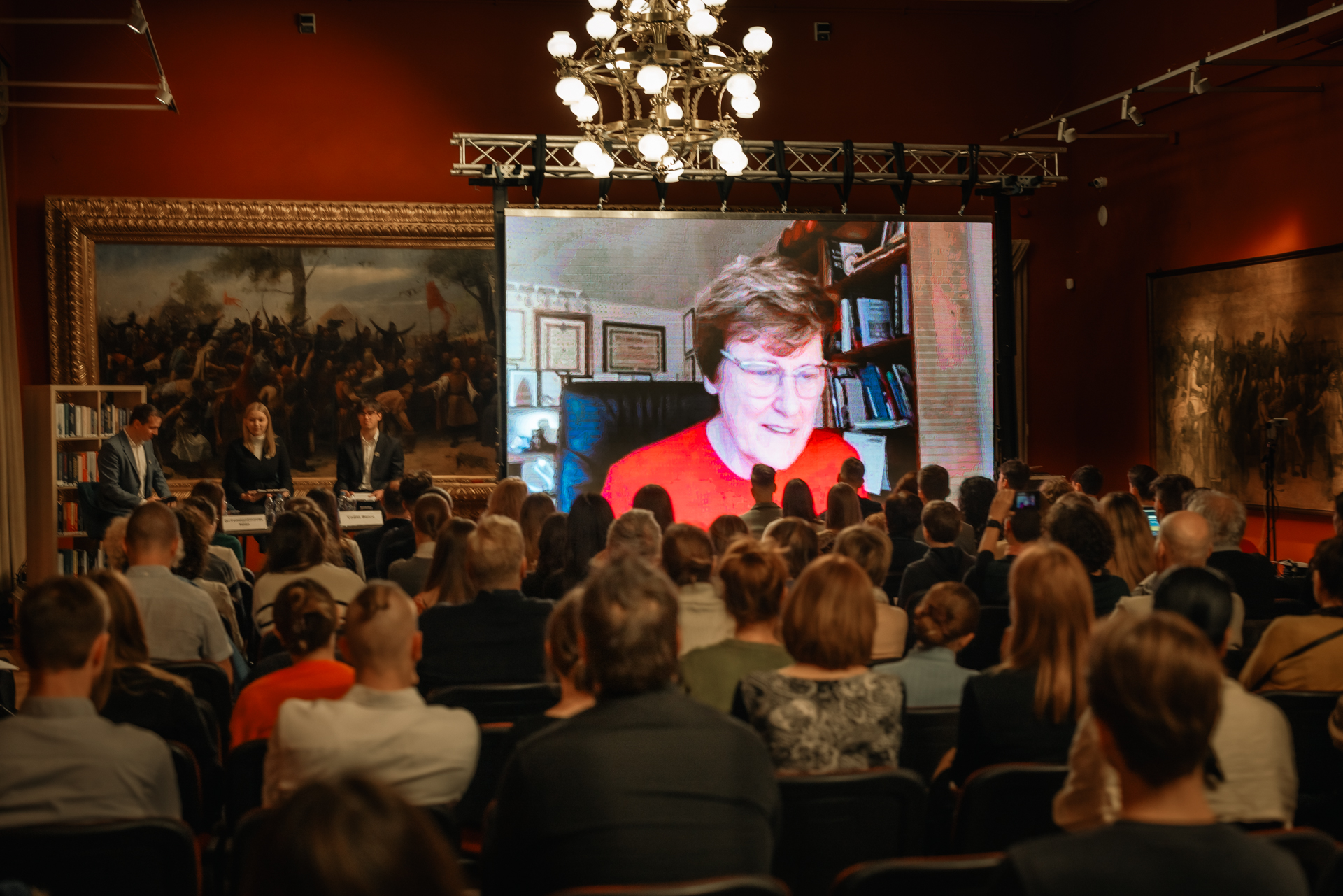
"I had a B average in my first class, while half of the class was excellent," said Katalin Karikó when she was asked when and how talent is recognised. According to the Nobel Prize-winning biochemist and research professor at the University of Szeged, if you have goals, determination and perseverance, you can succeed. The "Nobel Weeks at the University of Szeged" information campaign kicked off with a roundtable discussion jointly organised by SZTE and the Mathias Corvinus Collegium (MCC).
Valuable paintings by distinguished artists adorn the ceremonial hall of the Móra Ferenc Museum. Three young people sat on a podium in front of a bookshelf, savouring and sorting through the questions collected from their fellow students. They were preparing for the roundtable discussion entitled "The impact of the Nobel Prize on talent management" which started at 16:45 on 22 November 2023.
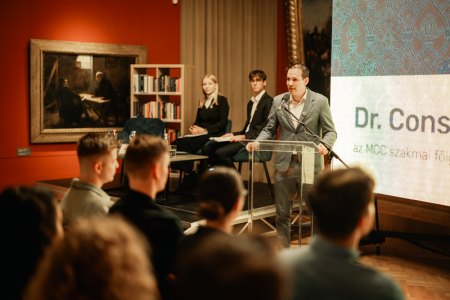
The audience was welcomed by Milán Constantinovits, Deputy Director-General of MCC and Prof. Dr. Klára Gellén, Vice-Rector for Education of SZTE, who analysed the components of talent management.
Inspiring environment, perspectives, role models. These are the key components of talent management at MCC, where young people are supported from the age of 10. Through their support systems and activities, they direct young people's attention to new discoveries and to the service of local communities and national future. The three key elements of the talent management programme of SZTE are communication, mentorship and attitude. In addition to the talented students of the University of Szeged, the SZTE Junior Academy also supports the development of high school students.
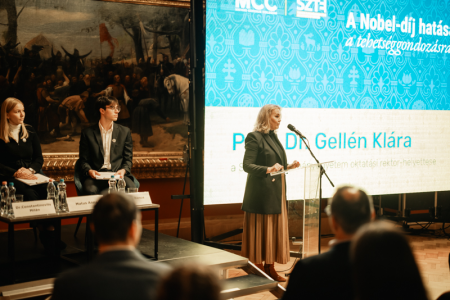
How does the scientific world communicate? It is important to address young people with concise and comprehensible information - said law professor Klára Gellén, Vice Rector for Education at the University of Szeged.
The Nobel Prize-winning biochemist joined the conversation online from her study in her Philadelphia home and smiled at the audience from an unusual giant projector in the patina-like environment.
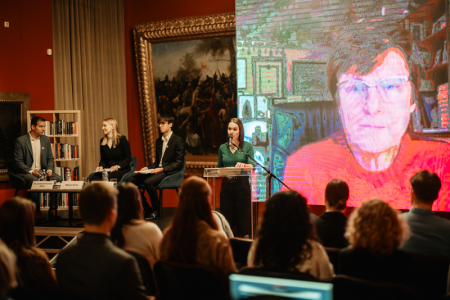
Katalin Karikó, who joined the discussion online, was greeted with a standing ovation.
- Set an important goal, make the primary school child want something as much as the 99-year-old professor. Even the most distant dream can be achieved and the most complicated problem be solved if we break it down into smaller goals and tasks," said Katalin Karikó, explaining the secret of success that can be experienced step by step. According to the Hungarian biochemist, we have to answer this question every day: What can I do?
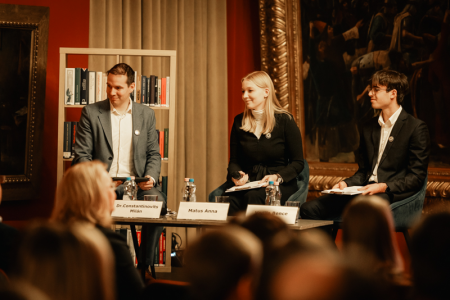
Milán Constantinovits (from left), Anna Matus and Bence Vodila spoke about the issues of recognizing, shaping and supporting talent.
The questions of the high school- and university students were interpreted by Anna Matus, a medical student at SZTE, and Bence Vodila, a first-year student at the Faculty of Economics and Business Administration at SZTE.
- In my first year I had a B average, while half of the class was excellent. I got a B even in conversation. My mum used to tell me: "You talk too much, you should have at least got an A in that". The researcher, who is now preparing for the Nobel Prize ceremony in Stockholm on 10 December, says that hard work, diligence and determination are more important than talent.
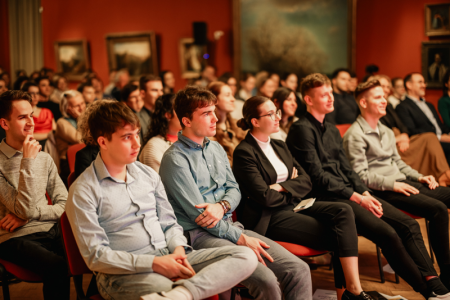
Big question: how can we maintain the curiosity of a child into adulthood?
One of the students diligently took notes in his notebook. The other leaned forward, almost hanging on the words of the Nobel laureate.
- The most important thing is family. Parents teach not only by their words but also by setting an example. It is important to give children a task, to involve them in the housework. But they should also be allowed to play and have fun, instead of the early and unnecessary extra lessons and extra sports classes - summed up Katalin Karikó, the mother of the two-time Olympic champion, Zsuzsanna Francia.
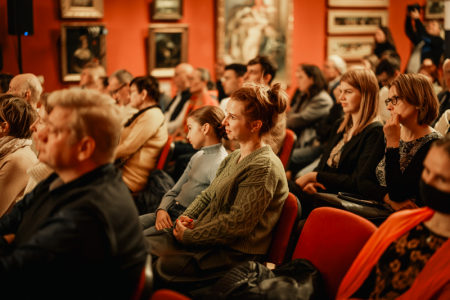
When asked about the power of community in developing talent, Karikó said that if she could travel back in time, she would most like to relive her five years as a student in Szeged.
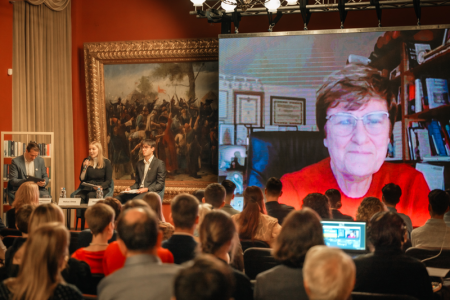
You have to teach the children to stand up for themselves! - emphasised Katalin Karikó.
- Recreation as a function of talent management? - Reflecting on the question, she gave the example of morning running, which had been part of her daily routine for years. In Mainz, I used to run 6 kilometers a day on the banks of the Rhine. I was in the laboratory by 7 a.m. at the latest. I always started work with the task that seemed to be the most difficult.
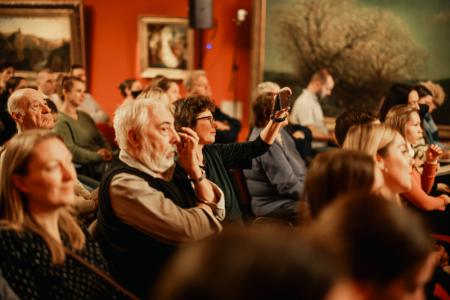
The roundtable discussion for young talents offered new information for seniors as well.
"Of course!" – that is how the famous researcher described the moment of grace of the "eureka" experience. According to Karikó, the method we usually see in the so-called Columbo's crimes can also be used by scientists: "When you experiment, you have to look for the little things that don't fit in, because these elements could be the key to the solution.
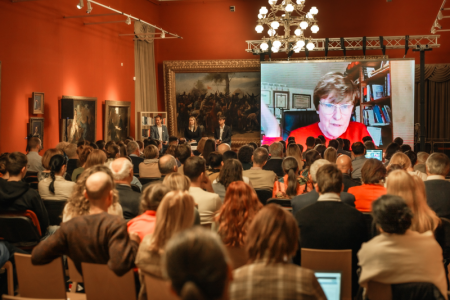
Katalin Karikó's Nobel Prize is an inspiration even for those who are not scientists.
The joint programme of the University of Szeged and the Mathias Corvinus Collegium revealed that: Katalin Karikó has been working hard over the last few years: she wrote her memoir entitled Breaking Through: My Life in Science; she is actively advising the team left over from her previous job at BioNTech; and at the same time, she is a research professor at the University of Szeged, who has just submitted her latest patent...
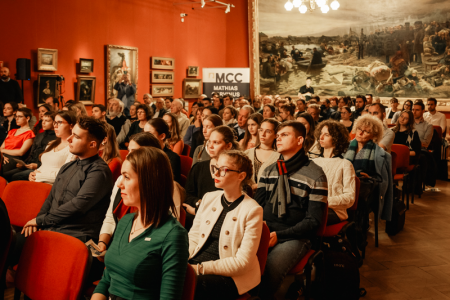
What do the two new Hungarian Nobel laureates mean for public life? They stand as an example that it is possible to rise from a small town and a family of manual workers to the top of science.
- What did you like most about the conversation between the Nobel Prize-winning researcher and the students? - I asked one of the students next to me at the end of the SZTE-MCC programme.
- Mostly Katalin Karikó's explanations, such as when she compared research work to the excitement of crime fiction and investigation-he answered.
The roundtable discussion on "The impact of the Nobel Prize on talent management" will soon be available on the YouTube channel of the University of Szeged. In addition to the stories surrounding the world's most famous science prize, those who participate in the educational campaign "Nobel Weeks at the University of Szeged" can also experience the joy of creation.
SZTEinfo – Ilona Újszászi
Photos by: István Sahin-Tóth
Article translated by: R.FK
More information about Katalin Karikó, research professor at the University of Szeged, is available on the SZTE website, news portal and the website of the SZTE Klebelsberg Library.

